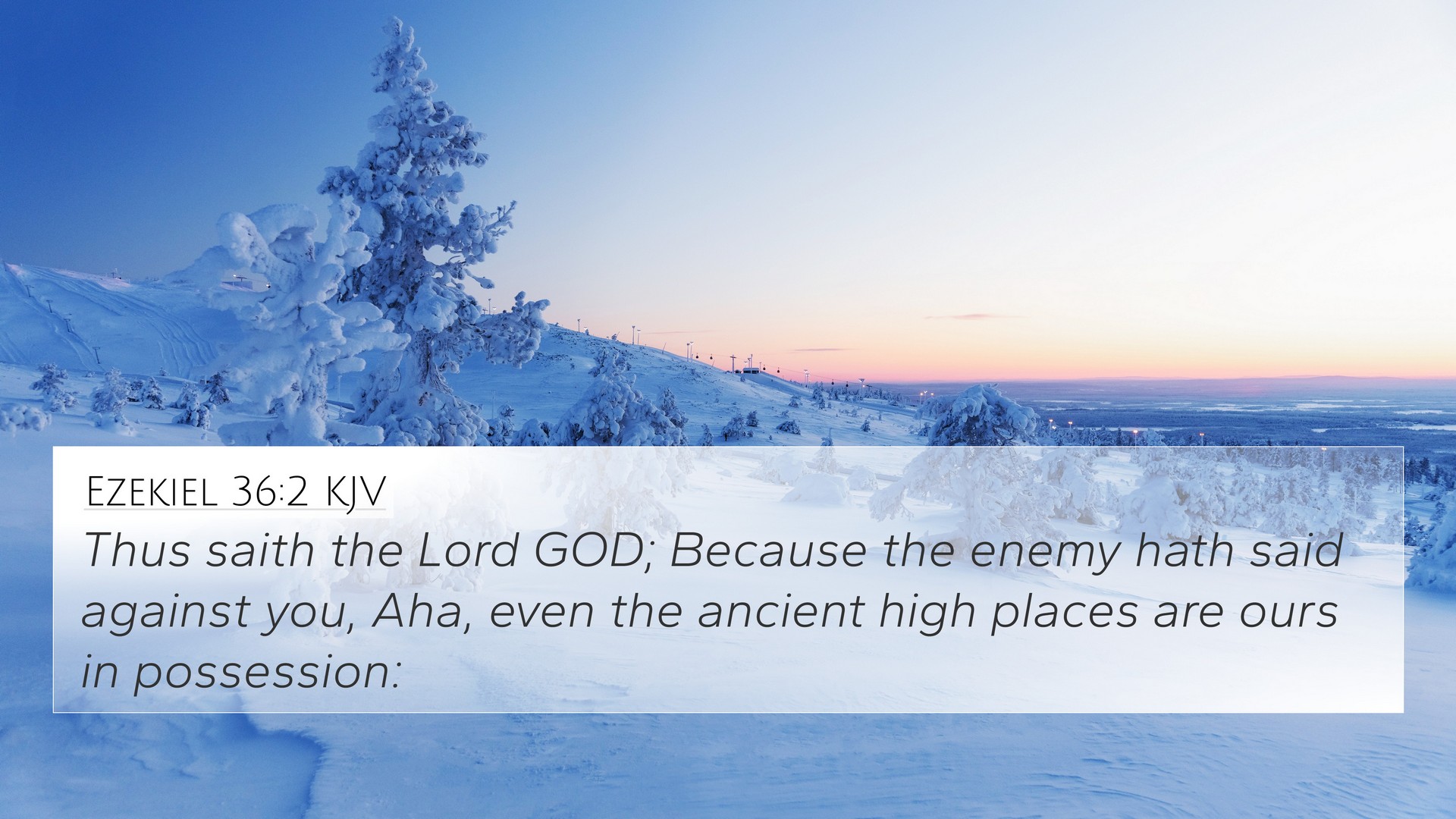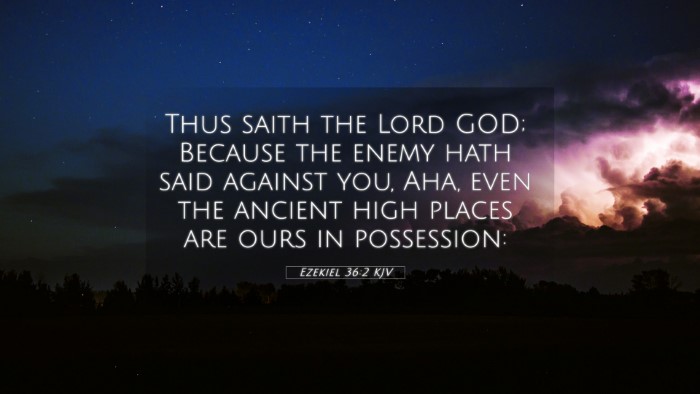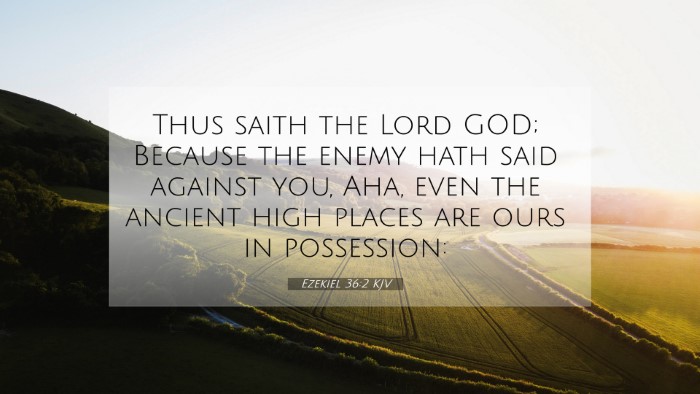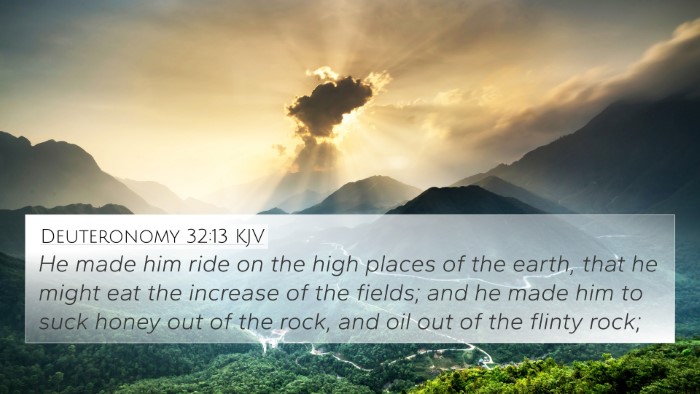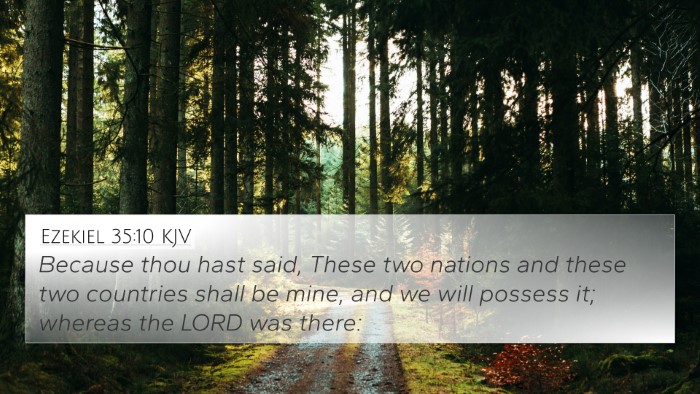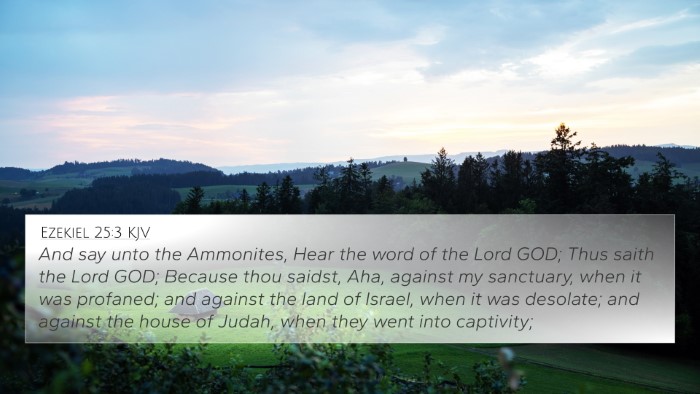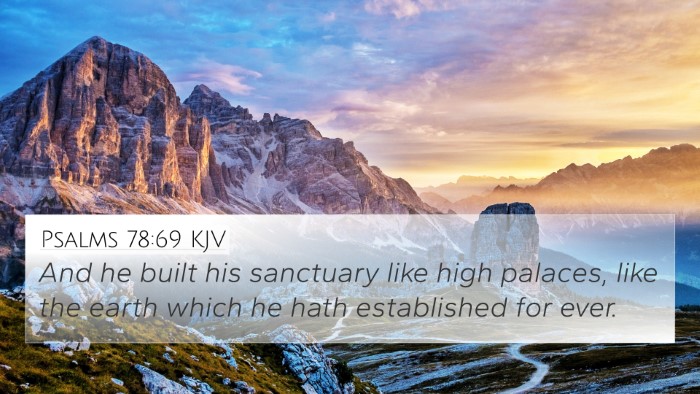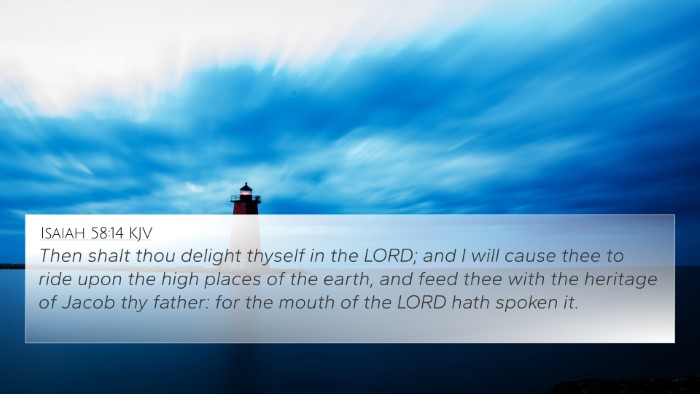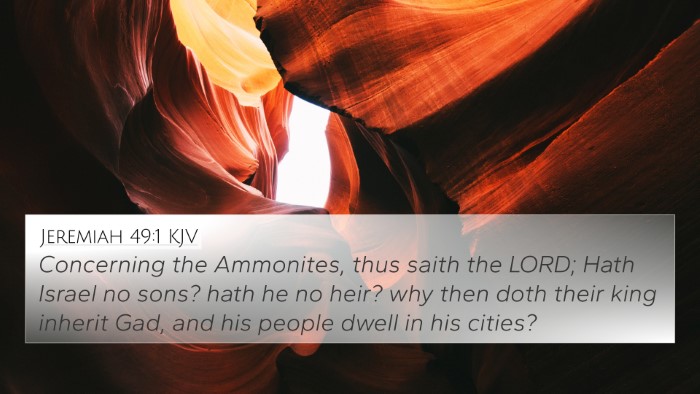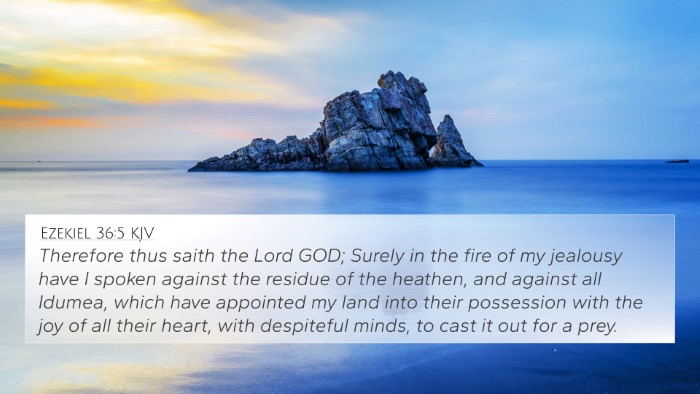Ezekiel 36:2 - Summary and Interpretation
Ezekiel 36:2 states: “Son of man, set your face against the mountains of Israel, and prophesy against them.” This verse marks the beginning of a significant message concerning the restoration of Israel. The prophetic call is directed to the wilderness and desolate places, symbolizing both the physical and spiritual condition of Israel.
Meaning and Context
This verse is set against the historical backdrop of Israel's exile and desolation. The title “Son of man” addresses Ezekiel directly, emphasizing his role as a prophet carrying God’s message to the people.
- Matthew Henry: Henry emphasizes the need for Ezekiel to confront the physical mountains symbolizing Israel's strength and pride, reminding the nation of its sin and impending judgment.
- Albert Barnes: Barnes discusses the significance of prophecy against the mountains as a representation of God’s judgment. He implies that these mountains were a source of idol worship, thus representing the spiritual corruption of the people.
- Adam Clarke: Clarke offers a detailed exploration of the imagery in the verse, linking it to the broader themes of hope and restoration. He interprets this prophetic act as an encouragement that God still has a plan for Israel's future.
Cross References
Ezekiel 36:2 is closely related to the following Bible verses:
- Isaiah 40:9: This verse speaks of proclaiming good tidings to Zion, demonstrating God’s intention to restore His people.
- Jeremiah 31:24: It discusses the physical and spiritual renewal of Israel, aligning with the themes in Ezekiel.
- Hosea 14:4: God's promise to heal Israel contributes to the restoration theme inherent in Ezekiel's prophecy.
- Ezekiel 34:13-14: These verses depict the regathering of Israel, showing a direct connection to the intentions expressed in Ezekiel 36.
- Romans 11:26: Paul’s reference to all Israel being saved echoes the restoration found in Ezekiel.
- Matthew 21:21: Jesus’ declaration about mountains in faith can relate to the spiritual significance of the mountains of Israel.
- Micah 4:1: The prophecy regarding the mountain of the Lord’s house reaffirms the prophetic significance of mountains in scripture.
Thematic Connections
This verse contributes to the broader themes found throughout the Old Testament and New Testament, particularly concerning God’s commitment to restoration and redemption.
- Restoration of Israel: The recurring theme of Israel’s restoration is pivotal, seen in both the prophetic literature and the New Testament references.
- Judgment and Hope: Many prophets, including Ezekiel, alternated between messages of judgment and the hope of future restoration. This is crucial for understanding Israel's narrative.
Tools for Cross-Referencing
To further understand the connections between Bible verses, one may utilize a variety of tools:
- Bible concordance for finding passages linked by themes.
- Cross-reference guides to explore relationships between verses.
- Comprehensive Bible cross-reference materials for deeper study.
Engaging with the Text
When engaging with Ezekiel 36:2, consider the following:
- Reflect on what it means to set one's face against something spiritually or socially.
- Examine how the themes of judgment and restoration manifest in your life and community.
Conclusion
Ezekiel 36:2 is rich in theological significance, serving as not only a call for prophetic action but also a reminder of God’s overarching promise to restore His people. Engaging deeply with this verse, alongside its many connections to other scriptures, enriches one’s understanding of the Bible as a unified work.
